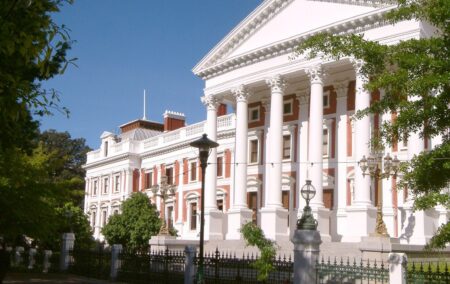There has been much talk about how South Africa needs an economic reset after the Covid-19 crisis. There is no doubt that this is true. A South Africa where close to 40% of people are unemployed (more than half of all South Africans will probably be unemployed once the dust has settled), and poverty is widespread, is not a country that is sustainable, nor one where all its people can reach their potential.
The governing African National Congress (ANC) envisages an even greater role for the state, post-Covid, which will do very little in putting South Africa on a path to prosperity. However, this will be the wrong tool to kick-start the South African economy – rather, we need less government interference; the jettisoning of policies which retard growth, such as black economic empowerment; and a reset of labour relations.
What we also need, when envisaging a post-Covid South Africa, is a reset of our politics. We need to rethink the relationship between South Africans and the people who represent them, especially regarding how these representatives are elected, and we need to re-examine the scope and benefits of federalism.
Currently, the way we elect our members of Parliament (MPs) and members of provincial legislatures (MPLs) leaves much to be desired. All our representatives are provided from a party list – party bosses are the ones who decide who goes to our legislatures to represent us, rather than ordinary South Africans. While this system ensures proportionality (a party’s share of the vote is reflected very well in the proportion of seats it secures in legislatures) there is no link between voters and MPs.
A first-past-the-post system, as used in the United Kingdom (UK), and Zimbabwe, and which was used to elect MPs in apartheid South Africa, ensures a link between MPs and their constituents, but can often lead to election results which don’t reflect the will of the voters. A prime example in South Africa was the National Party’s winning a parliamentary majority in 1948 despite gaining ten percentage points less of the popular vote than the United Party under Jan Smuts.
Optimal
A system which combines these systems would be optimal, with half of representatives being elected from geographical constituencies and the other half from party lists to ensure proportionality. It is already the system that we use at municipal level and is used by a number of other countries, including Germany, New Zealand, and Lesotho.
The Daily Friend has previously proposed this electoral system as a model here and here.
Of course having at least some MPs elected from geographical constituencies will not magically ensure that people are represented fairly. But voters will have a person in the legislature they can take their grievances to, and make sure that they are heard by those who make our laws. And imagine, if you will, how powerful it would be if the member for Johannesburg East (or whatever the constituency would be called that includes Alexandra) asked in Parliament what those in power were doing to ensure that there would be justice for Collins Khosa?
South Africa should also look at the relationship between Pretoria and our provinces, and whether a federal state would suit our purposes better. In South Africa’s two constitutional conventions – the first, which led to Union in 1910, and the second, which preceded democracy in 1994 – lip service was paid to federalism. But in a country of South Africa’s size, and given our various ethnic, and linguistic cleavages, federalism could well be a solution to a number of problems. It could also derail the small but growing movement for Cape independence.
There are many countries around the world with diverse populations that show how federalism can work, and we should learn from them.
In addition, there is some difference in the capabilities of our various provinces. While the Western Cape and Gauteng have fairly capable administrations, the same cannot be said for other provinces, such as the Eastern Cape or Limpopo. Those provinces that can be given more responsibility should be given it, and those which struggle to supply services to their residents should be stripped of it.
Other elements
There are also other elements of our political framework that we should consider rerforming. For example, is there a case to be made for the direct election of municipal mayors, provincial premiers, and perhaps even the President? And with regard to the Office of the President, perhaps we should give consideration to separating the role of Head of Government from Head of State?
Unfortunately, utterances from President Cyril Ramaphosa and other senior members of the ANC give the impression that the ‘reset’ South Africa needs is one that will see it continue on its disastrous path of the past ten years.
We have an opportunity to change our political system and reform our economy in a way which works for all South Africans. Unfortunately, what has become clear from Ramaphosa’s presidency is that he never misses an opportunity to miss an opportunity. And it will be ordinary South Africans who pay a heavy price for this.
[Picture: PhilippN, https://commons.wikimedia.org/w/index.php?curid=2304571]
If you like what you have just read, subscribe to the Daily Friend

